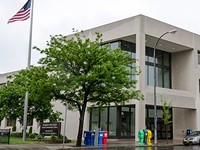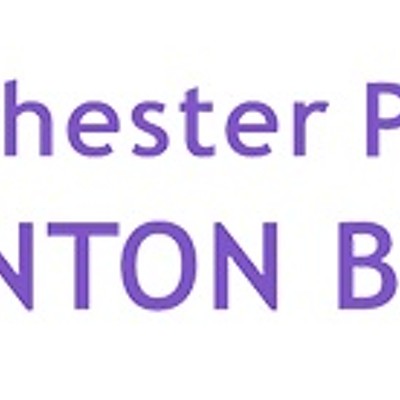[
{
"name": "500x250 Ad",
"insertPoint": "5",
"component": "15667920",
"parentWrapperClass": "",
"requiredCountToDisplay": "1"
}
]
"Detroit is simply a particularly stark example of what happens when a nation decides that cities are no longer important."
It's risky to visit a city for a few days, see only part of it, and then draw conclusions. But you can't visit Detroit – as we did earlier this month for our alternative news media convention – and not be stunned by the devastation: the result, physical and human, of years of abandonment by residents, by manufacturing, by investment.
City block after city block of empty, weedy lots, boarded-up houses, fire-scarred apartment buildings. Spectacular, thriving downtown buildings nearly cheek to jowl with tall, hauntingly empty ones. Signs in a middle-class neighborhood announcing that it is patrolled by a private security force. Concern about crime so serious that convention-goers were warned, by the convention hosts, to take a cab, not walk, from our hotel to the MGM Casino five blocks away. (Online, I'll include links to some Detroit photo websites.)
Detroit has a lot going for it. The Detroit Institute of Arts' Diego Rivera murals alone make the museum worth visiting. The city's rich collection of important architecture includes Mies van der Rohe's beautiful Lafayette Park and Frank Lloyd Wright's Dorothy Turkel House (recently privately restored).
And despite challenges that would snuff out the hope of many Americans, Detroit is fighting its way back, in big ways and small. Campus Martius Park becomes a lively, people-filled, downtown community center over lunch hour. Quicken Loans founder Dan Gilbert not only had his company build a new headquarters downtown but has been convincing other companies to follow his example. Renaissance Center, the sports stadium, restaurants, hotels: there's a lot going on downtown.
There's plenty going on in Detroit neighborhoods, too, led by residents themselves: community gardens, neighborhood preservation, outdoor art.... The afternoon we went to see the Turkel House, it was hosting a fund-raiser for the Woodward Avenue Action Association, a neighborhood group whose work focuses on everything from public safety, street beautification, and code enforcement to community organizing.
What Detroit residents and community leaders are doing is impressive. And yet Detroit has lost so much. Its population is now less than 750,000 – down from a peak of about 2 million. The result includes residential blocks where well over half of the houses have been demolished, commercial strips dominated by deteriorating buildings, a high poverty rate, and a city government that strains to provide basic services.
What has happened to Detroit is unconscionable. And Detroit is not alone, of course. It is simply a particularly stark example of what happens when a nation decides that cities are no longer important and that their decline has no consequences. ("Syracuse Will Be Broke Within Three Years," read a recent Syracuse Post-Standard headline.)
Detroit's effort to survive and thrive, against soul-killing odds, is inspirational. But I have to admit that it was really, really good to get back to Rochester, where the decline has not been as severe (relatively, at any rate) and the odds against recovery aren't quite as large (relatively).
A few days after we got home, we went to the kick-off party for the Jazz Festival, which this week is again packing downtown streets and concert venues with ecstatic people of every age and ethnicity. (Look what we're doing in Rochester! Success!)
At the kick-off party in the Eastman Place atrium, the Jazz Fest's founders talked about this year's event while across Main Street, men were rhythmically leaning and straining, pulling on ropes and raising the festival's Big Tent by hand.
That is how America's cities are being saved, by individual people leaning and straining and pulling by hand. This nation has abandoned its cities, emotionally, financially, morally. Cities are having to survive on their own, because we have no urban policy, not at the federal level, not at the state level, not at the county level. And the work for Detroit, Rochester, Syracuse, and far too many others – the work for their residents, their business owners, their public officials – gets harder, not easier. Because we have decided that cities are no longer important.
Latest in Urban Journal
More by Mary Anna Towler
-

Police reform: advocates on what should come next
Oct 22, 2019 -

Court clears the way for Police Accountability referendum
Oct 17, 2019 -

Dade outlines initial actions on district deficit
Oct 9, 2019 - More »





